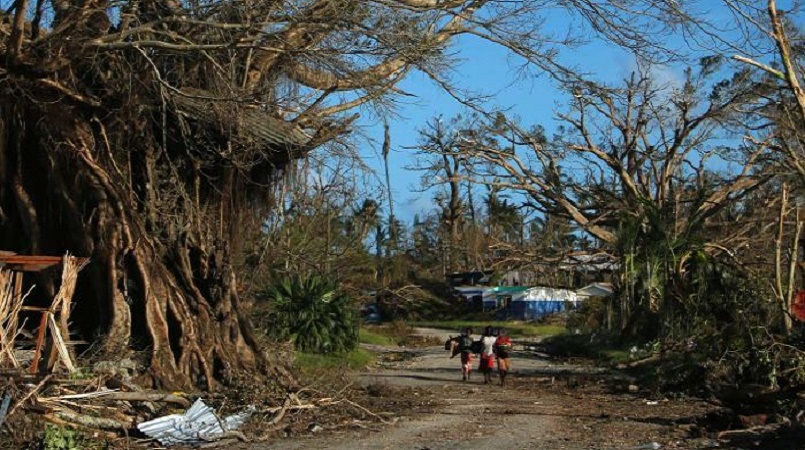
Authorities say the death of a two-year-old girl in Vanuatu may be the first fatality in the country linked to the region's worsening drought.
The drought is adding to the devastation caused by Cyclone Pam six months ago, with people in some parts forced to forage for food in the bush.
Dr Jacob Kool from the World Health Organisation's office in Vanuatu said the girl from Tanna Island died from severe diarrhoea, which may have been caused by contaminated water or inedible food.
"There is a severe food shortage on the island," he said.
"People have been eating unusual food crops which they don't normally eat.
"Some people say diarrhoea is caused by that.
"There's also drought at the moment and as a result people are drinking unsafe water as well so it could just as well have been the drinking of unsafe water that caused an intestinal infection."
Dr Kool said he was aware of three more children suffering severe diarrhoea.
"We also have a surveillance system that reports all kinds of cases of diseases and there has been an increase in the cases of diarrhoea for the last two weeks," he said.
Tanna Island was one of the areas hardest hit by Cyclone Pam earlier this year.
Houses were destroyed, food gardens were ripped up and high tides inundated sources of fresh water.
An El Nino-driven drought is compounding the devastation caused by the category five storm.
Charlie Damon from CARE International said her organisation has been distributing seeds and tools to communities on Tanna Island to get crops growing again.
But Damon said the dry weather since Cyclone Pam has hampered recovery efforts and some people have been forced to look for food in the bush.
"People are foraging in the forest for what's traditionally called bush rope which is just a root in the ground," she said.
"Children are chewing on it and they are taking it as basically their lunch to go to school."
Vanuatu's government announced it will conduct another distribution of rice and tinned fish to affected communities, the fourth since the cyclone.
But Dr Kool said the move was "only an emergency band aid" and more was needed to avert another such disaster.
"I think all the aid agencies have to go back in there and double the effort. What's been done so far is not enough," he said.
Vanuatu is not the only South Pacific country dealing with a severe drought.
There are unconfirmed reports dozens of people have died from starvation in Papua New Guinea, and authorities are mobilising emergency supplies of food and water.
